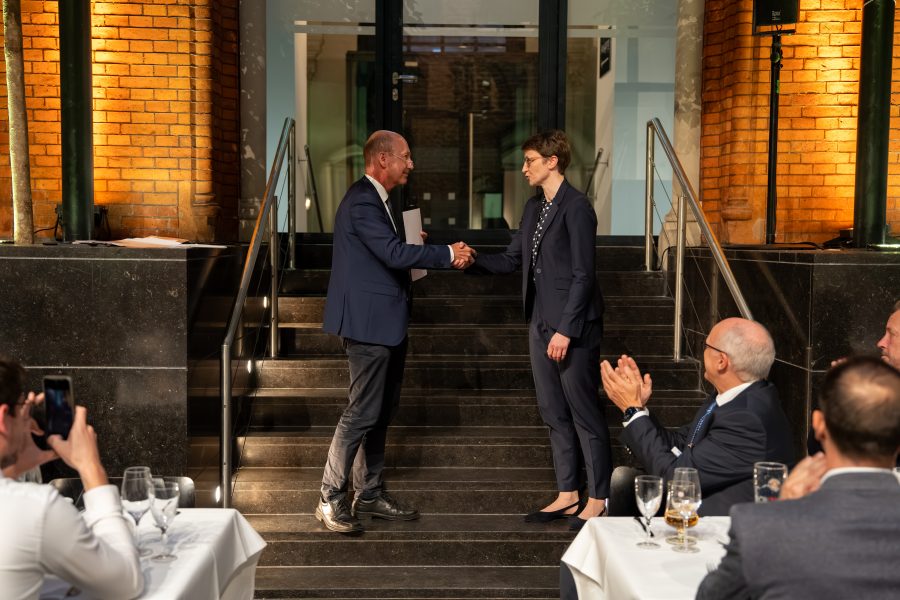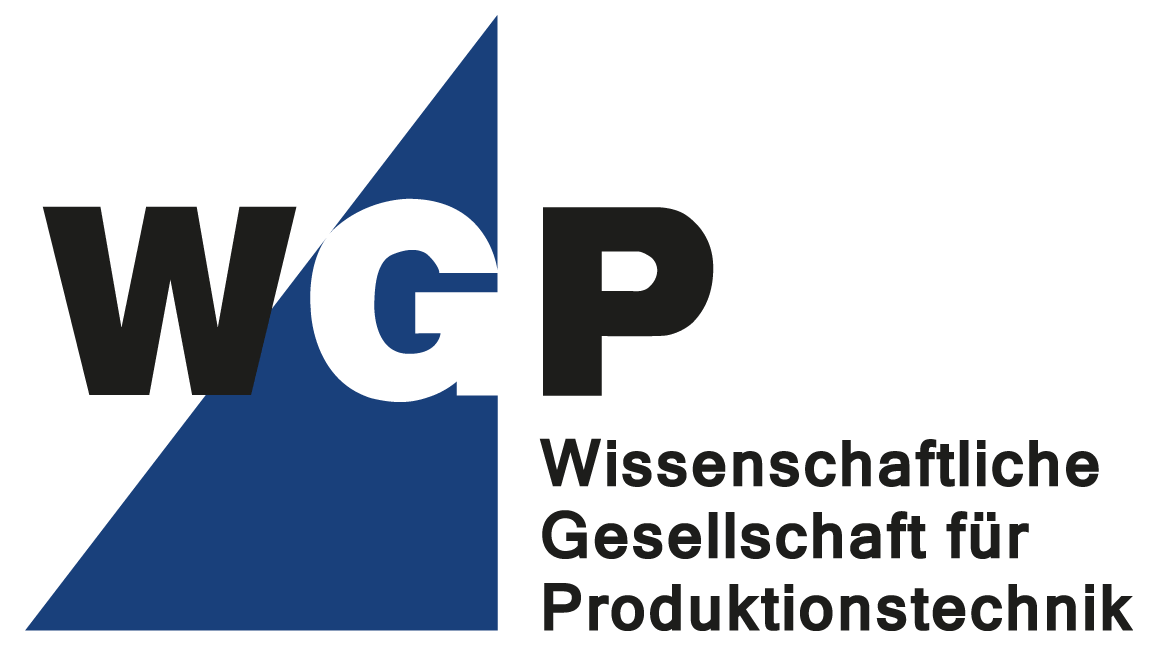
Frankfurt, 22 October 2025 – Right at the start of her studies, Dr Monika Kipp – this year’s winner of the WGP’s Otto Kienzle Memorial Coin – discovered her passion for machining and, in particular, grinding technology during an internship. In the course of her work at the Institute for Machining Technology (ISF) at TU Dortmund University, this interest developed into tangible international research projects that significantly advanced grinding technology, particularly in tool grinding. For example, she investigated the precision machining of carbide with elastically bonded diamond grinding tools. Another important aspect of her work is the use of flexible diamond tools, which can be used to rework structured surfaces without affecting their profile. She is conducting research into ultra-fine surface machining with diamond-coated foams. ‘With Monika Kipp, we have been able to honour a young scientist who made a name for herself internationally in her field of research at a very early stage,’ says Prof. Michael Zäh, President of the WGP. ‘Her determination and enthusiasm are exemplary.’
A Germany Scholarship brought the then aspiring industrial engineer into close contact with companies at a very early stage. Later, at the ISF, she was able to intensify her cooperation with industry as part of her research activities at the ISF Dortmund in industrial joint research. ‘I really appreciate that I was able to benefit from the experience of established industry representatives and build up a network when I was still young,’ she reports. The young talent grew up in the Tecklenburg region, between Münster and Osnabrück. She still lives there and drives around 100 km to the university in Dortmund every morning. Although the Ruhr region is known for its traffic jams, things often go better than you might think, she says. She adds: ‘Today, however, there was a traffic jam due to an accident,’ which is why she is conducting the interview from her car at a rest stop. But that’s not something that could upset Monika Kipp so much that she could no longer rave about the precision machining of carbide tools or the influence of application preparation on it.
Good preparation is important when grinding
The latter is very exciting, especially as it will enable her to further develop her doctoral thesis topic, says the 35-year-old enthusiastically. She initiated it in cooperation with colleagues in Gothenburg, Sweden, at Chalmers University of Technology. The Rudolf Chaudoire Prize from TU Dortmund University enabled her to undertake this research stay last spring. ‘The stay there was extremely informative and rewarding,’ enthuses the Saerbeck native. ‘We were able to advance fundamental knowledge on the preparation of diamond micro-grinding wheels for use and the interactions involved in material separation in the surface micro-machining of hard metals.’ In this project – as in others in which she is involved – the young scientist values cooperation with other research disciplines, such as materials science and physics, but also with industry.
Precision machining like with a kitchen sponge
In addition to her research work on tool grinding and tool preparation, Monika Kipp cites the finishing of surfaces with diamond-coated foam as one of her central research topics – work that has also attracted great interest at international conferences. “This material can be used to efficiently machine complex surfaces. At the same time, it is as flexible as a kitchen sponge, allowing it to adapt to shapes and structures. This means that even structured surfaces can be finished very finely and microdefects removed without affecting the profile. This means the process has great potential for many industries, from carbide machining to medical technology,” explains the young scientist. She would like to continue researching in this direction with the team at the ISF and initiate a follow-up project.
Mentor for students and employees
Her determined research took the award winner far early on. Even before completing her doctorate, she was given the opportunity in 2020 to head the Grinding Technology Department at the ISF at TU Dortmund University – just five years after starting as a research assistant. ‘I was delighted to accept the offer and agreed immediately because it is an incredible opportunity for further development.’ She means this not only in terms of grinding technology, but also with regard to ‘background topics’ such as managing her team of currently 18 people, organisation and cooperation.
In addition to her role as head of department, her responsibilities at the ISF also include teaching courses. “I don’t just want to pass on knowledge, I also want to inspire enthusiasm for grinding technology. I try to do this by combining theory with practical applications – and with a look to the future. When young students know where technologies might be heading, they can more easily relate them to their own future. That makes the topics more tangible.‘ Monika Kipp sees herself as a mentor to her students and colleagues. ’I want to not only support them in their professional development, but also pass on my own experiences and act as a sparring partner in discussions so that young people can also develop personally. This is only possible with open communication on an equal footing.”
Sport as a balance
But how can such extraordinary commitment to the university be reconciled with her private life? ‘I am a very active person,’ says the young talent about herself. She does athletics, volleyball and rides a motorbike. ‘Sport, especially athletics, gives me a balance.’ Until 2009, the grinding technician even competed in middle-distance and obstacle running as a competitive sport. ‘Today, I’m just a happy amateur runner.’ In addition to physical activity, she volunteers at her club, SV Teuto Riesenbeck e.V., where she works as a referee, among other things. ‘That way, I stay in touch with competitions. And since I can organise my volunteer work myself, I can manage it well alongside my work at the ISF. If I didn’t do that, I would feel like something was missing.’
Download:
Image 1: Presentation of the Otto Kienzle commemorative coin at the WGP Annual Congress in Hanover; Source: René Laeger
Image 2: Dr Monika Kipp; Source: ISF Dortmund
Image 3: Prof. Michael Zäh, WGP President, Head of iwb Munich; Source: Sebastian Kissel
